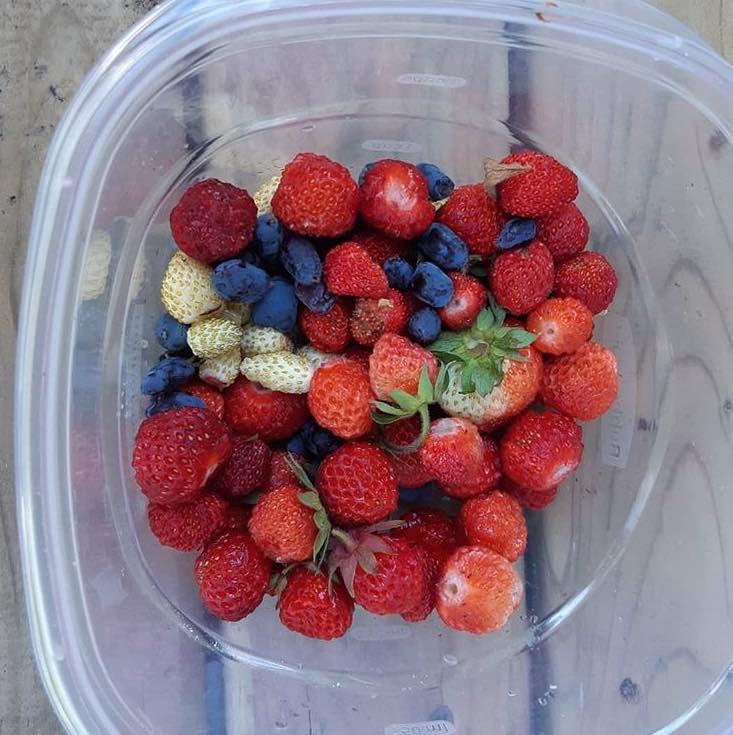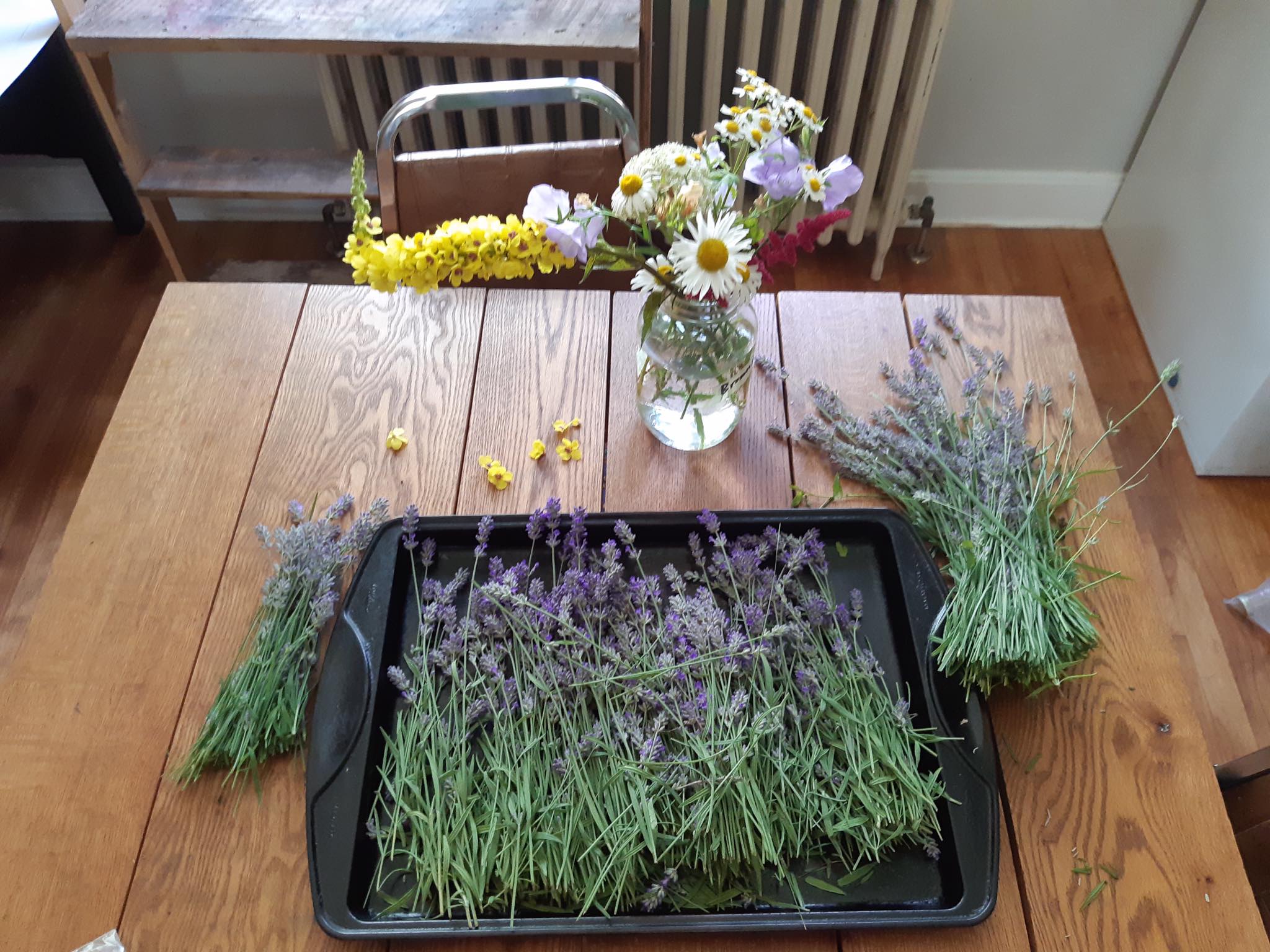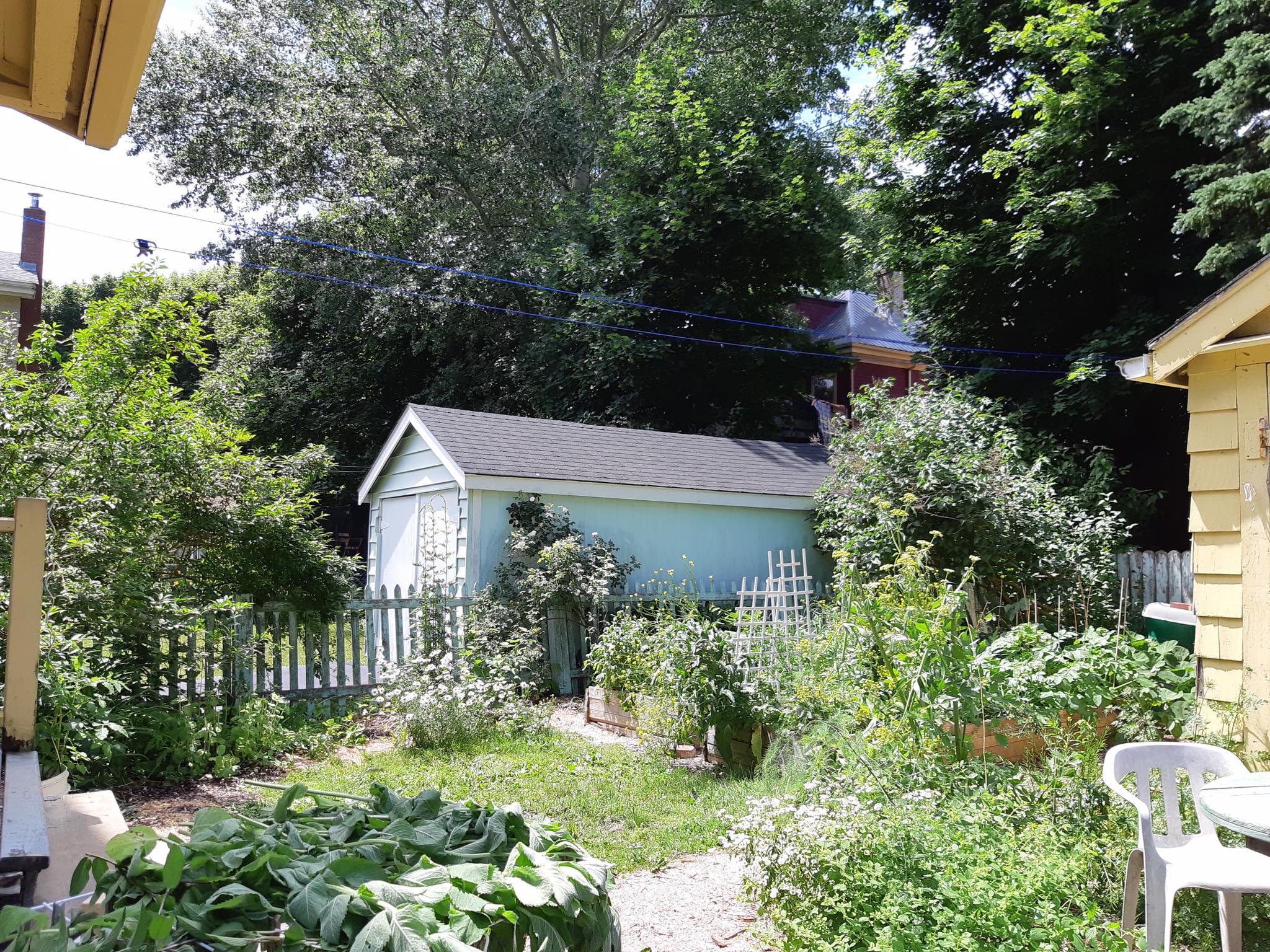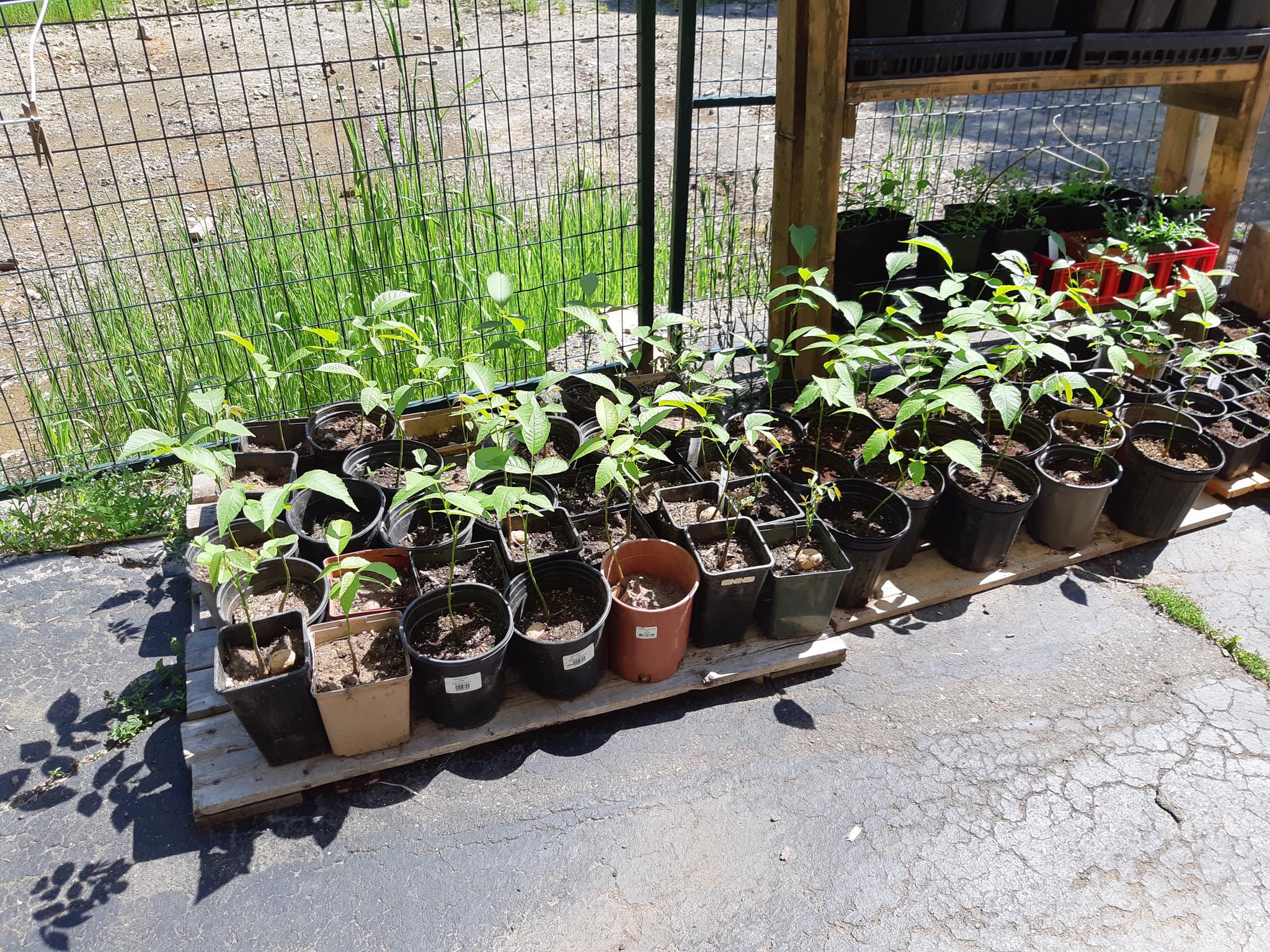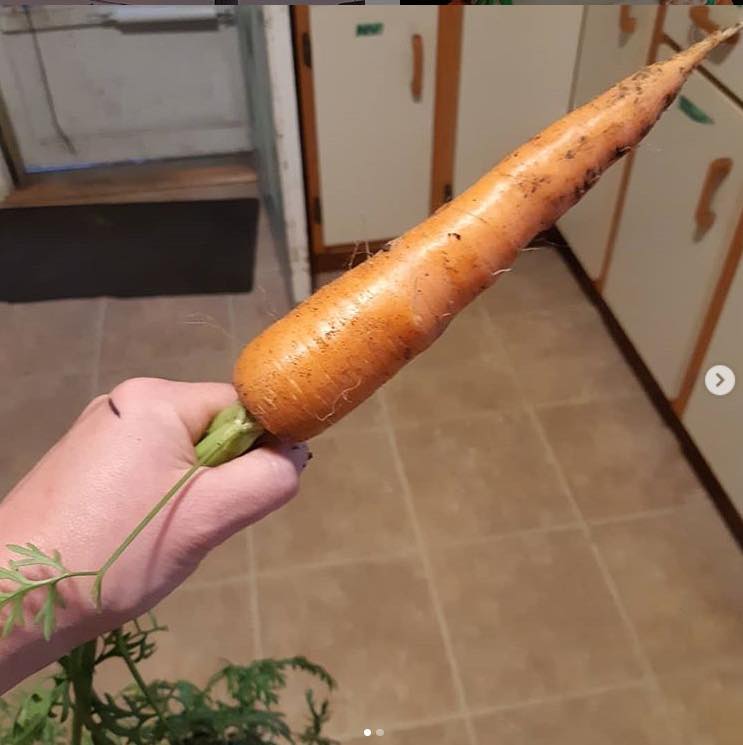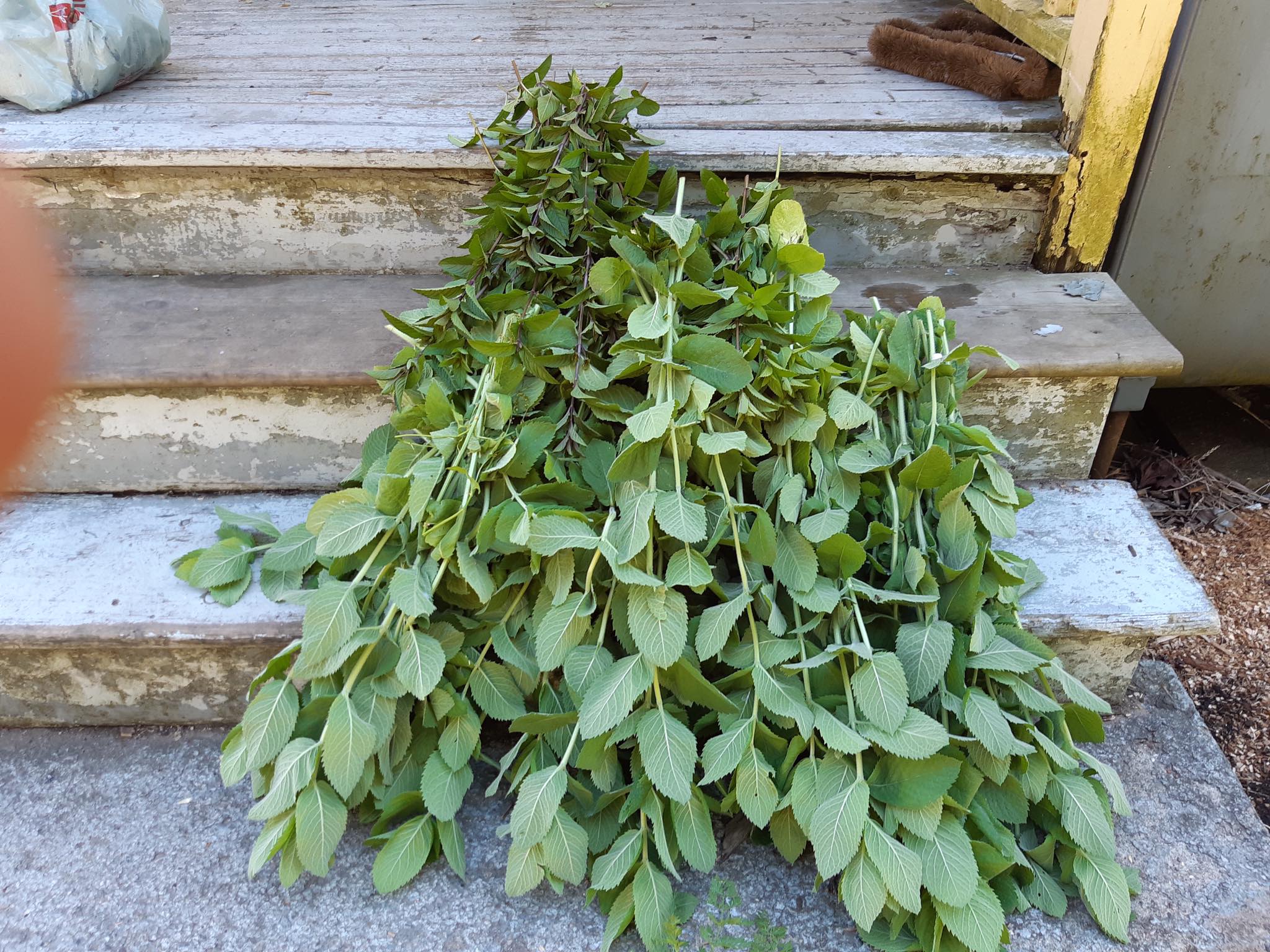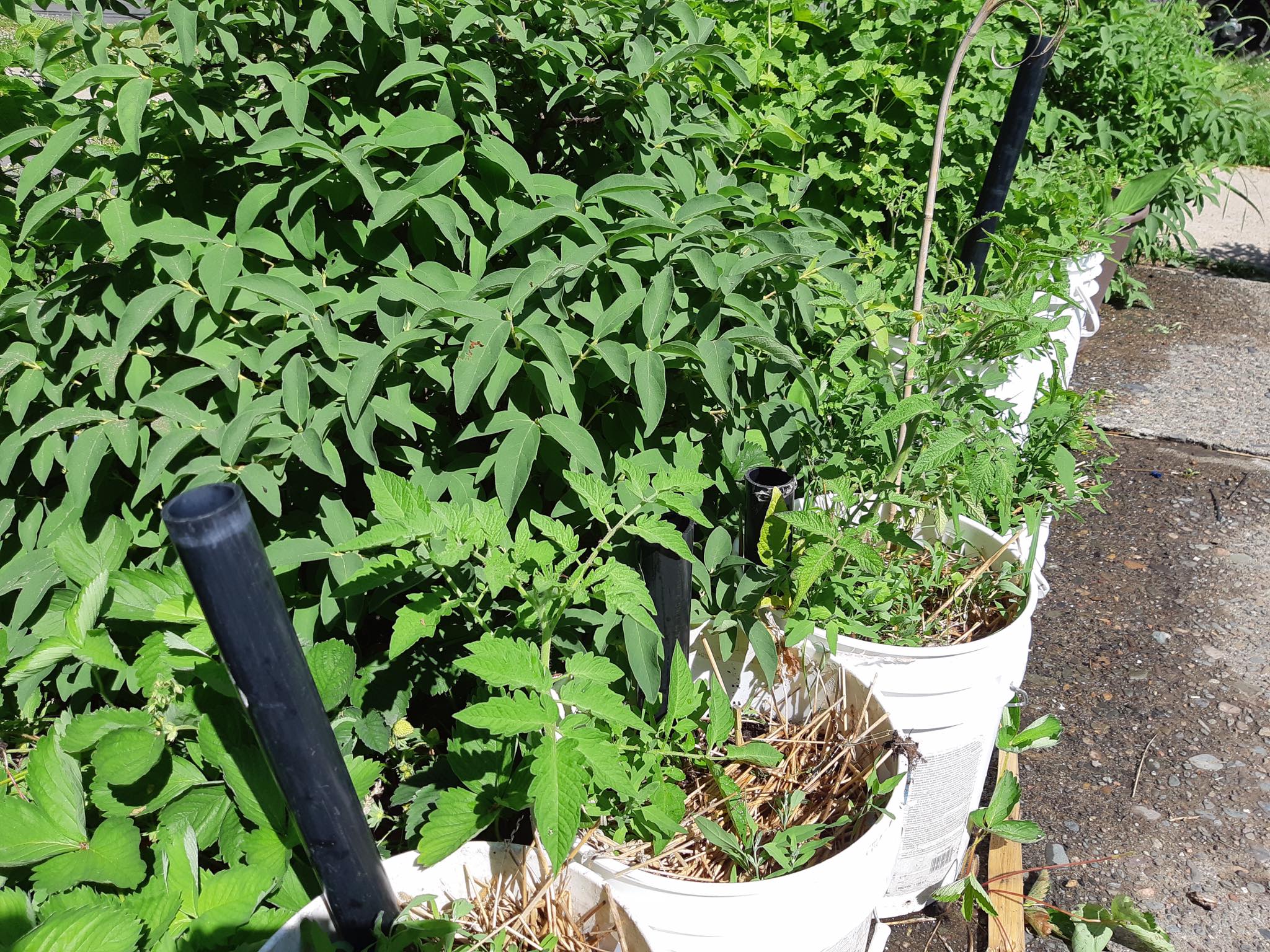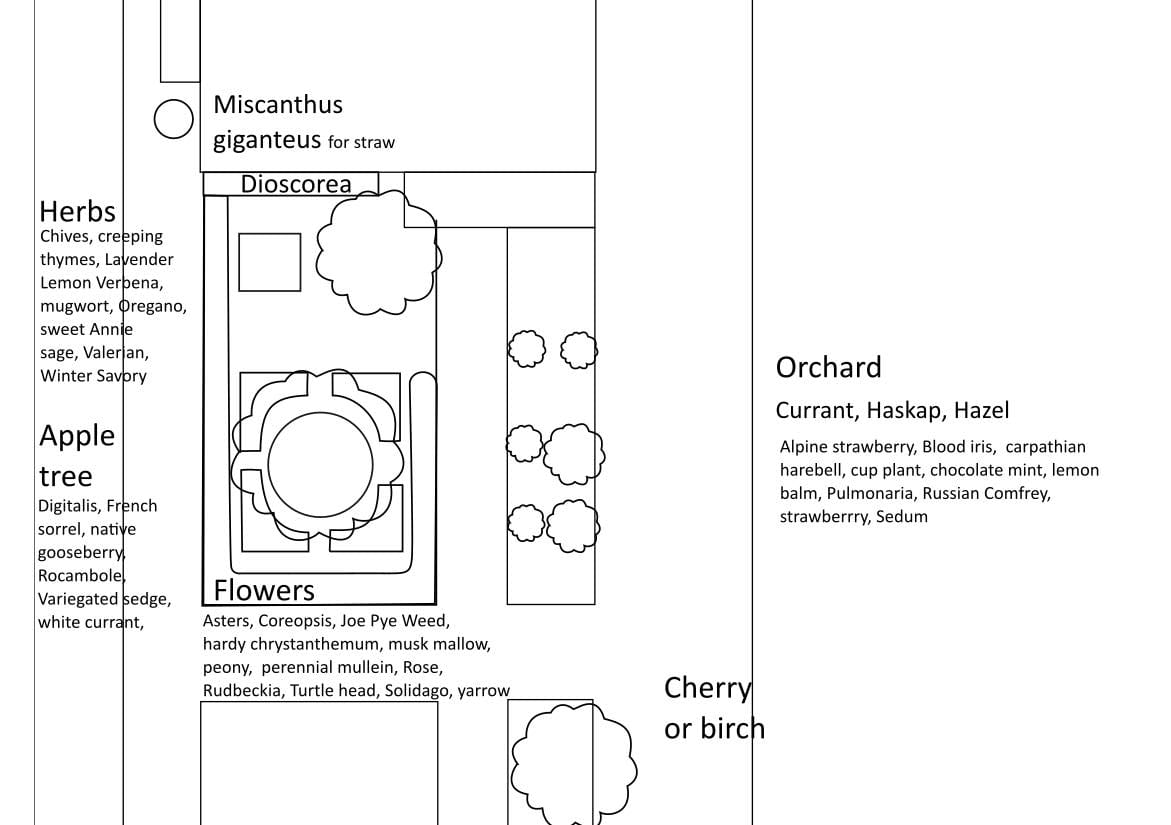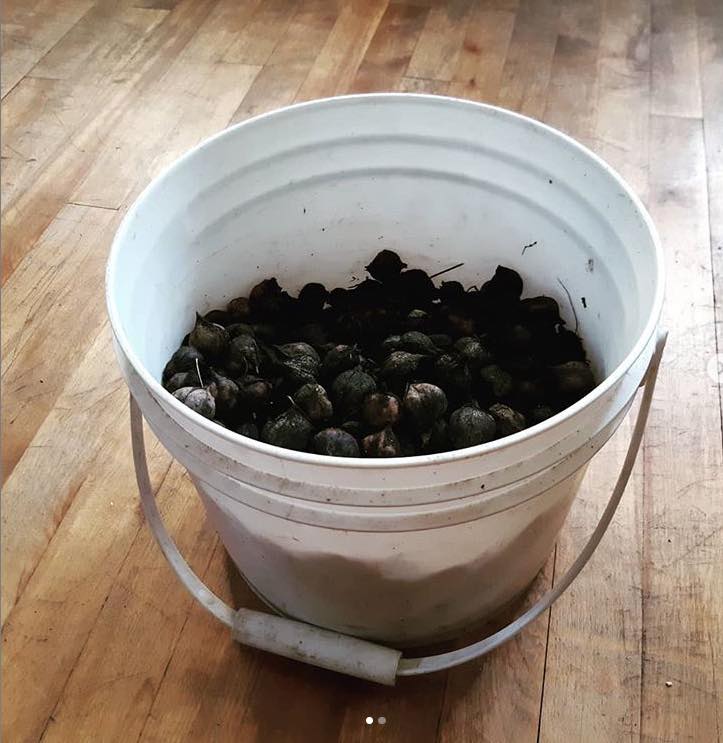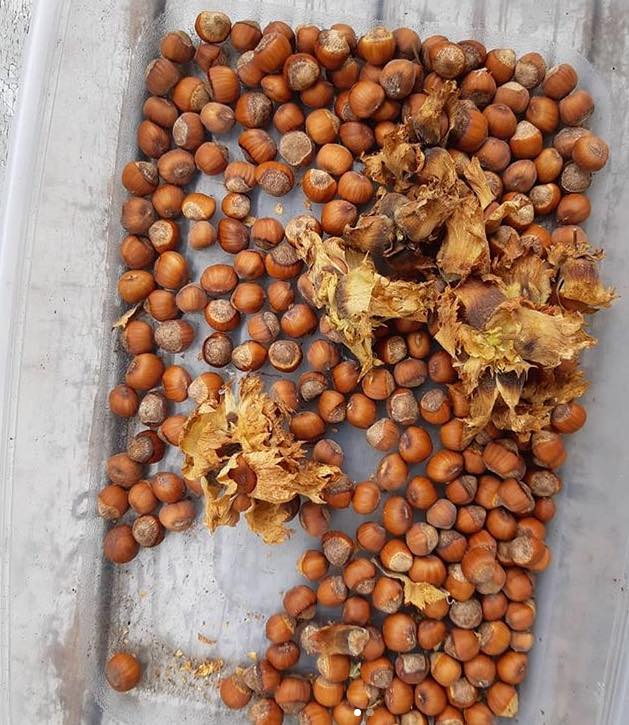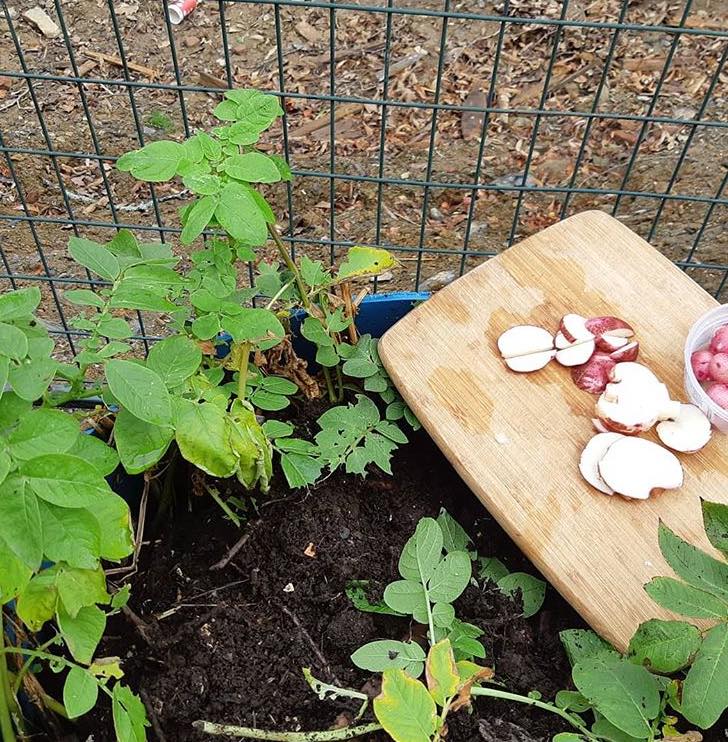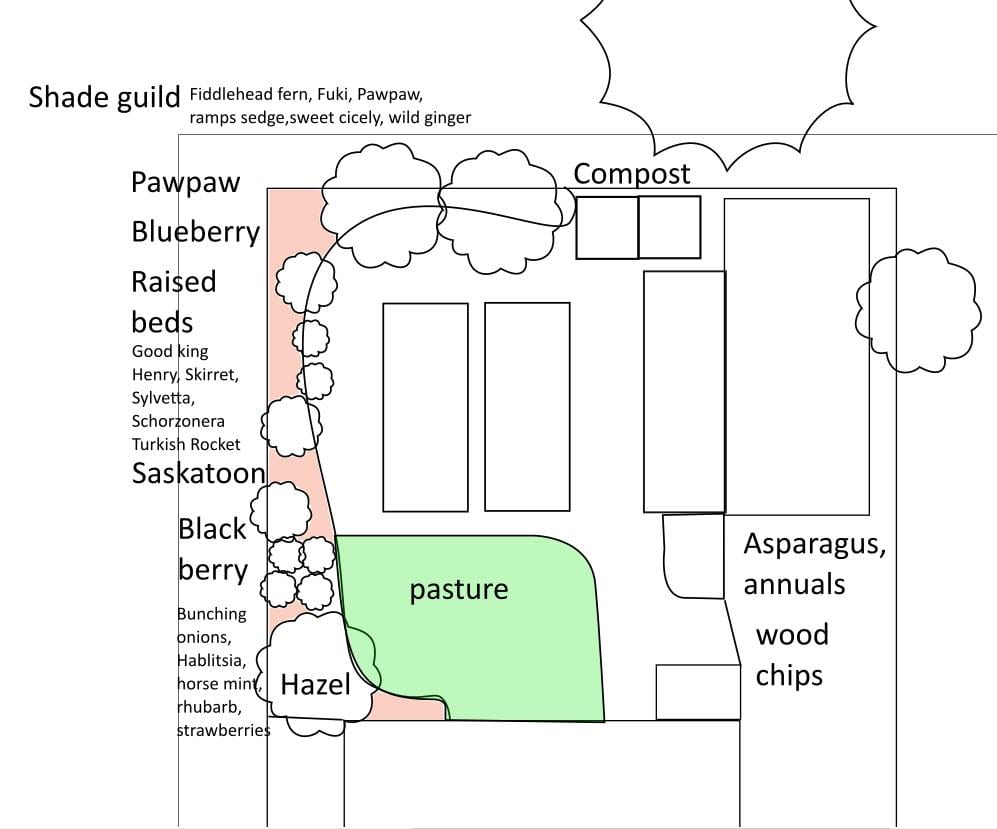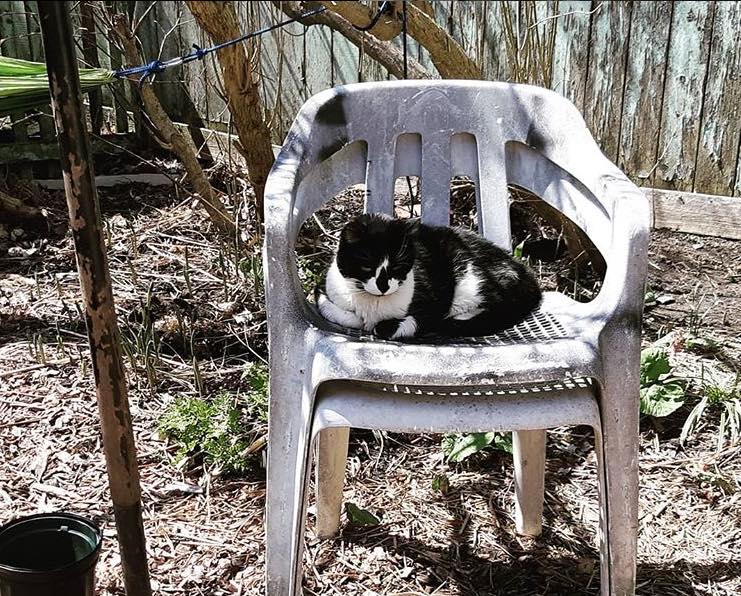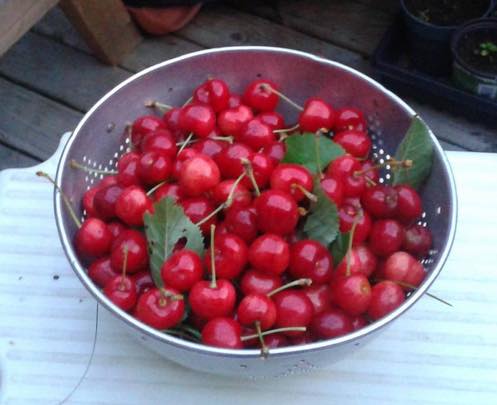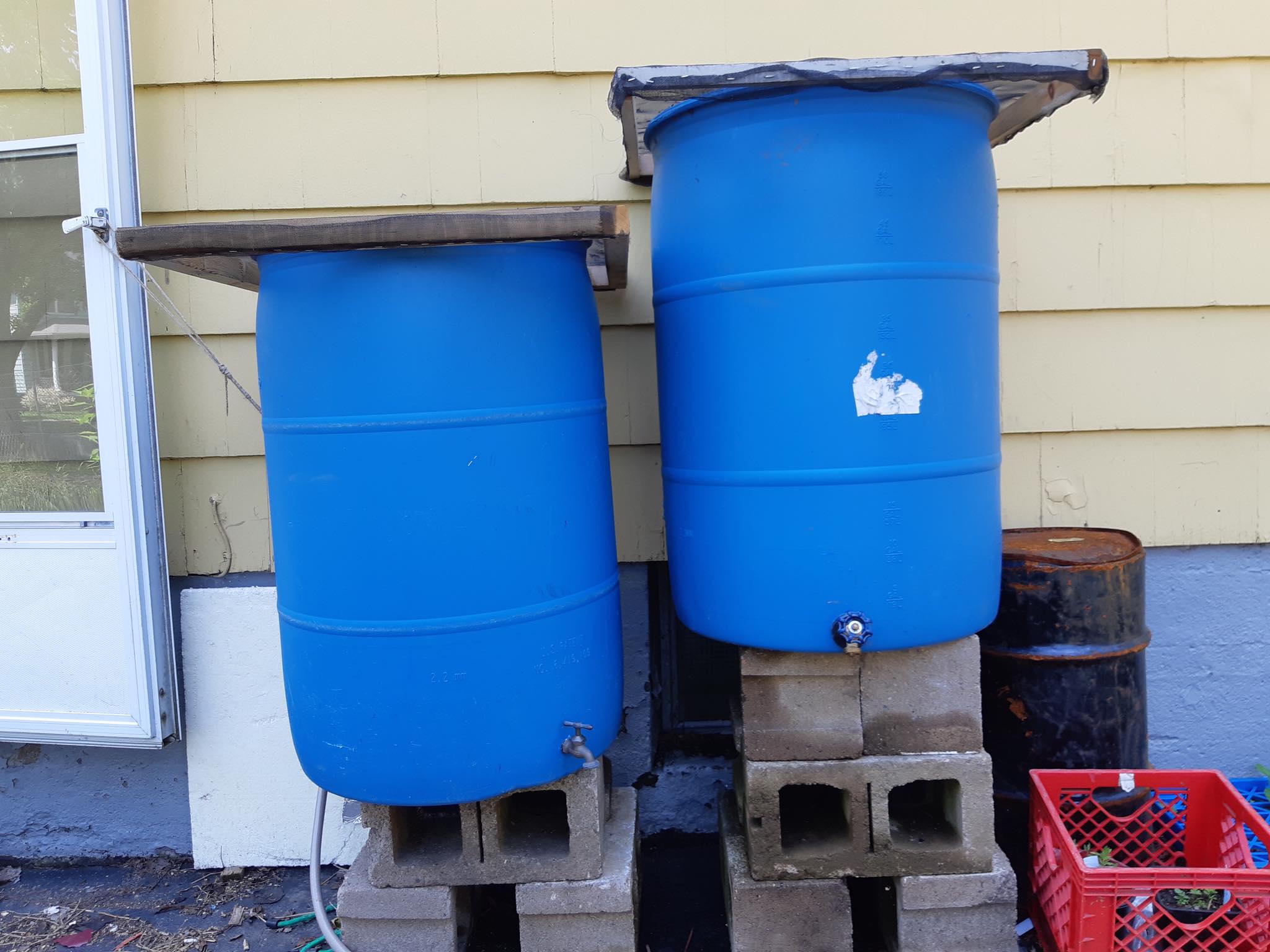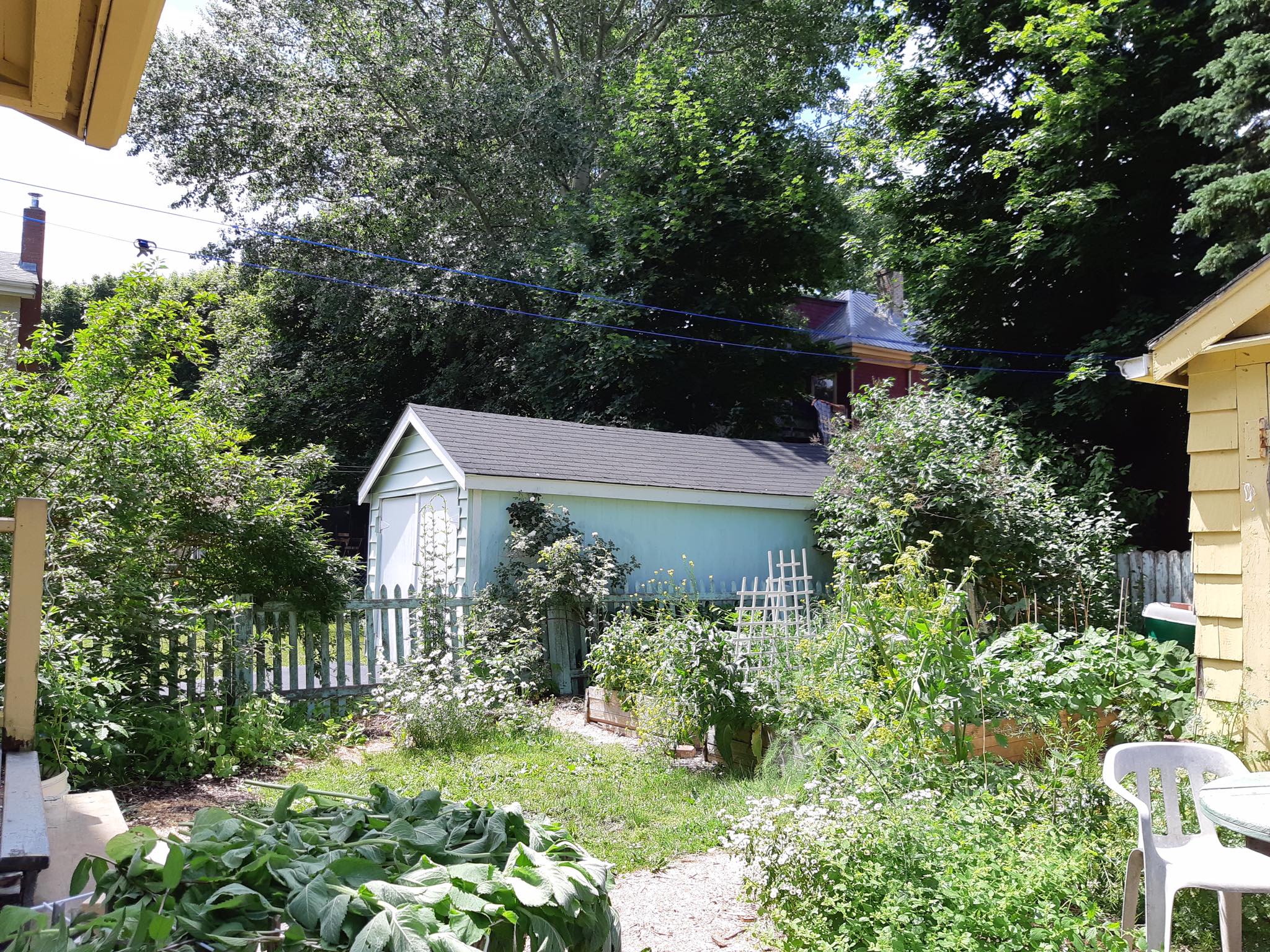
Meet Jenn from Nova Scotia, Canada
“I’m a neurodivergent person living with a mental illness who is a third generation from refugees. I live with my excellent spouse in a community house with 7 people in Mi’kmaw territory in K’jipuktuk.
I make thoughtful and timely interventions in natural systems to increase ecosystem health and yields for humans. It will take a lifetime of learning to master but I think I’m pretty good at it. I have a part-time landscaping business and I got my Permaculture Design Certificate in 2011 from Verge Permaculture.
My parents are biologists and I grew up with a reverence for life. When I was in elementary school the janitor taught an elective to grow food plants from seed. I remember being impressed by Italian families in Hochelaga Ongwe’onwe grow all their tomatoes for the year in buckets under all their wine grapes on a tiny plot. In the 1990s I researched medicinal wild plants. All plants are basically the same, and I found plant skills were transferable.
The natural world was like a parent to me, and was there for me when no-one else was. Nature at times seemed like the only good thing. Now the natural world is in danger, I try to give back every day. I wanted to be able to rely on my own skills in a world that seemed uncertain. In 2003 other environmental activists talked about permaculture. Growing food reduces our carbon footprint, increases our resilience, and allows us to recycle a good deal of our waste water and nutrients, while creating habitat.
Now our land is downtown. The front yard is 20′ squared and the backyard is 20×26 feet but a lot of that is also compost and recreational space. We grow potatoes in raised beds on the driveway. I grow in some vacant lots, community gardens, friends’ yards and gather from wilder spots and encourage wild and feral edible plants. I also have a food forest on a friend’s farm for seeds and propagation material.
At home we grow 11 fruit varieties, hazelnuts, 15 different herbs, and 17 perennial vegetables. Annuals we are growing this year are squash, zucchini, potatoes , tomatoes, cucumber, calendula, garlic, and lots of kale. I grow and sell fruit and nut trees in the micronursery. We are far from meeting all our food needs. We support local farms for produce, storage crops, and staples like potatoes, legumes, flour, dairy, and oils.
To maintain soil we compost all kitchen waste, tissues, soiled paper and some humanure with sawdust and this makes about a yard of compost twice a year for topdressing. Carboniferous waste goes back onto the beds as mulch and we bring in some straw bales every year for the border. Being by the sea we also get seaweed. I find with our large diversity of crop and support plants, undesired plants don’t have much space to grow as their niches are taken up. Our system is advanced further along in succession and has less disturbance, like digging and exposed soil, that can lead to “weeds" in earlier succession and more disturbed sites. It helps to find plants that like the disturbance niche, like purslane, amaranth, strawberries feverfew, and lemonbalm, and let them cover the bare spots themselves so you don’t have to. I generally let the plants move to where they want to grow in the garden and decide the best location for themselves.
It’s advantageous to plant tiny flowers like yarrow, lovage and the herbs to host a diversity of insects. I have continuous blooms from March to December. The closed canopy of leaves , rough mulch, and compost pile also encourage diverse insects, birds, spiders, fungi, microbes and wasps that do a lot to control pest insects and diseases. It also really helps to have healthy plants in good soil. I take a very laissez faire approach, and if a plant isn’t strong enough to make it, I just let that one die.
My biggest barrier to growing is my mental illness, which also leads to frequently being physically sick as well. Eating locally, growing food from scratch and being lower waste all take time. Being a self employed gardener allows me to have the freedom to work when I can and have adequate self care. My lifestyle would be much more difficult without my beloved partner who also wants to invest in green labour. I definitely feel healthier when I come back from travelling and can plug back into my own food system. The neigbours often compliment on the flowers, too.
I teach people who live with me the rhythm of the garden and its tasks as they align with the seasons, one-on-one until they move on and someone else moves in. I believe the people around me intuitively feel that the system as it exists cannot be relied on to support their needs, that global industrialism requires heights of energy that are largely unnecessary and unreliable. They feel insecure and don’t know why. I have come to realize that shelter is as basic of a need as food. Gardening will not solve problems such as green transportation, relocalizing necessities such as hospitalization, furniture, and non-biological waste recycling. This is why I assist movements like School Strike for Climate and Extinction Rebellion. However I also see the positive results of teaching basic environmental concepts to my colleagues who agitate for policy change.
Experiment, and don’t take failure personally. Stuff dies and that’s a part of the cycle of life. Gardens and ecosystems are chaotic and immensely complex systems with lots going on, and each one is unique. There are many ways to garden successfully in such systems and we can become attached to One True Way if we find something that works. So take people with gardening gospel with a grain of salt. Use your intuition, and find some advice that inspires you.”
